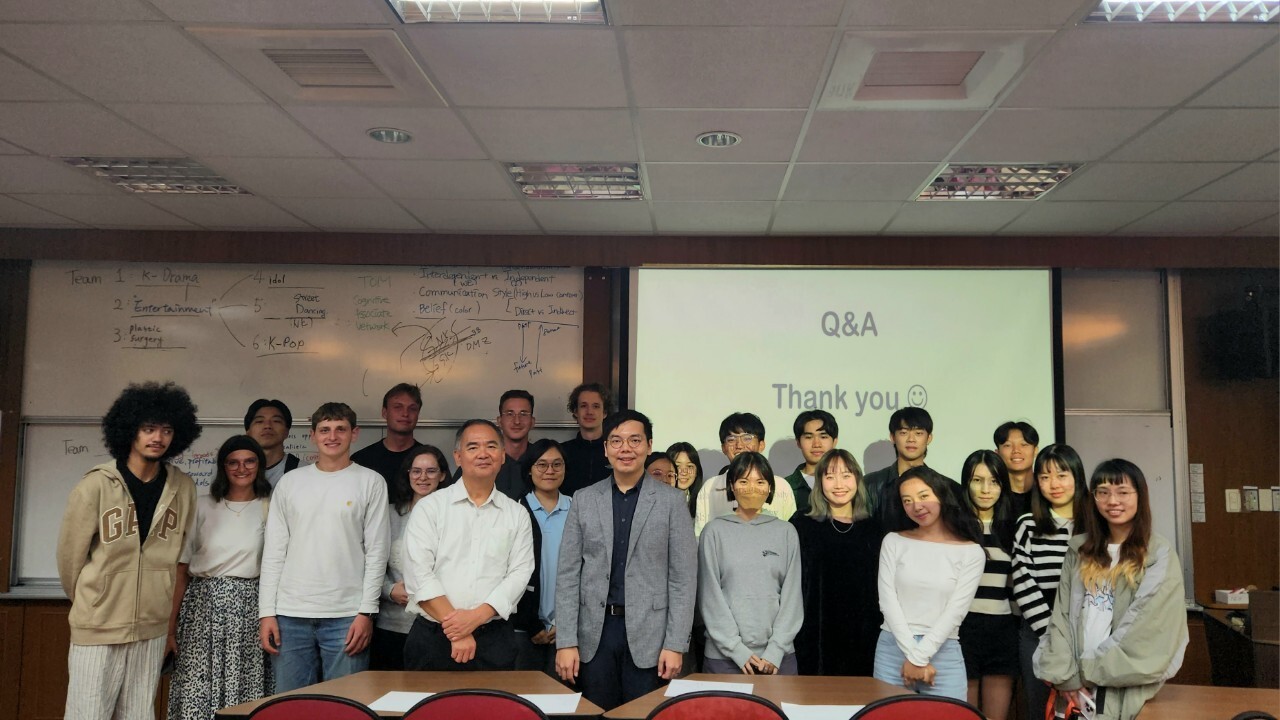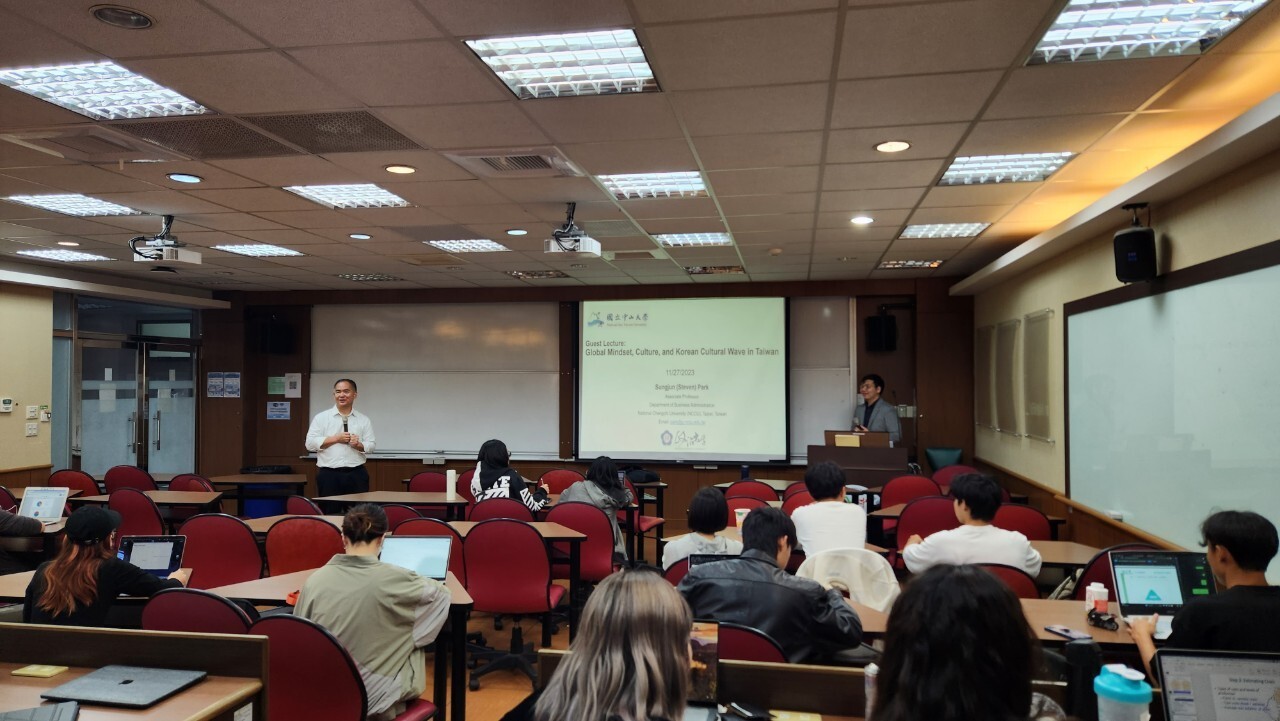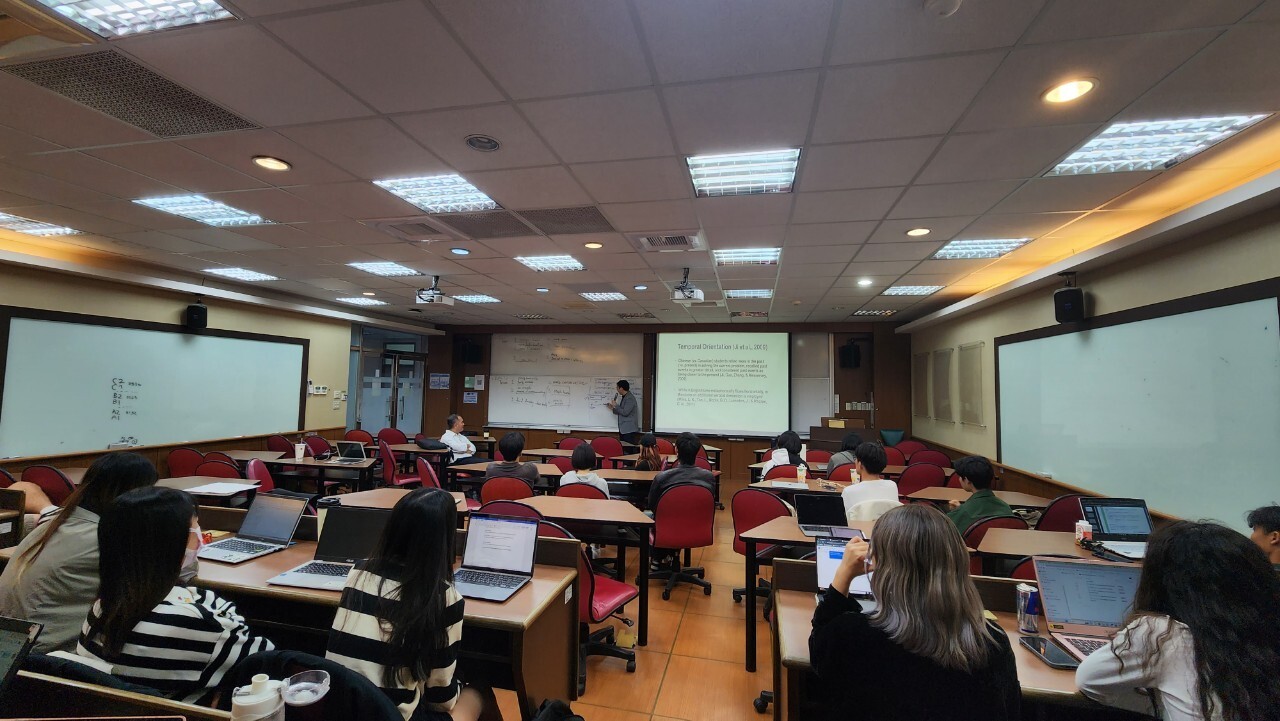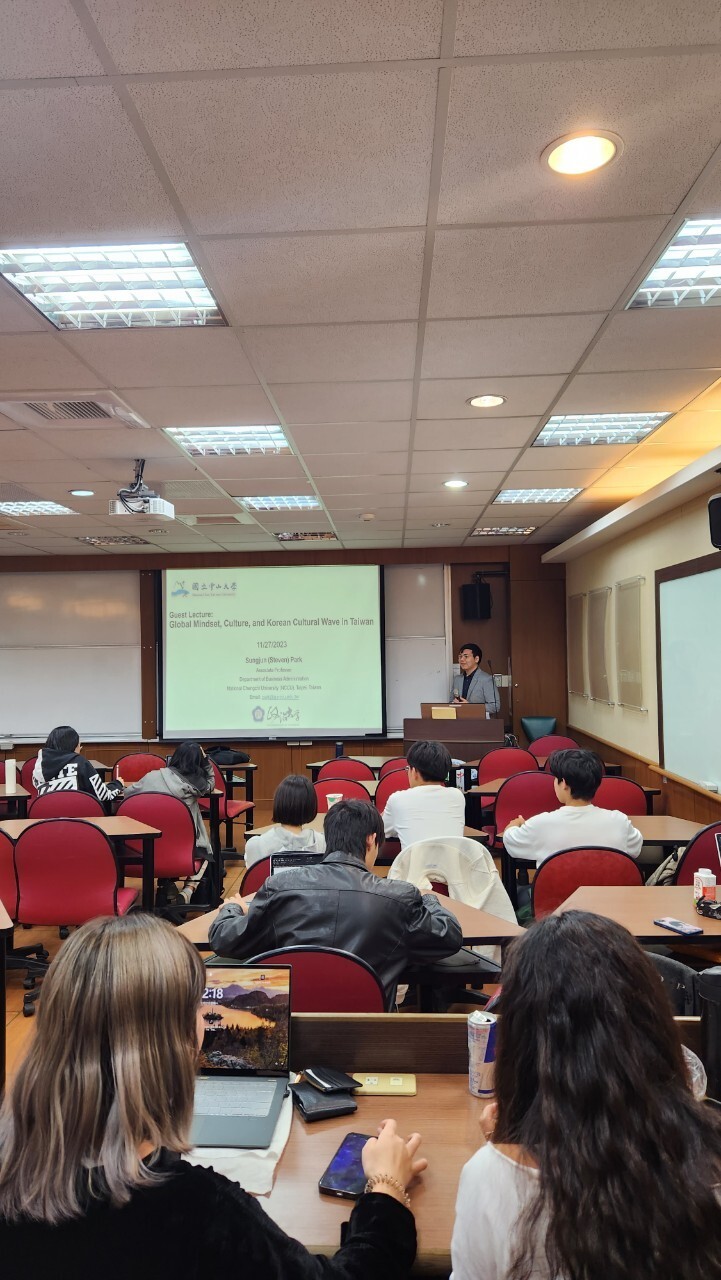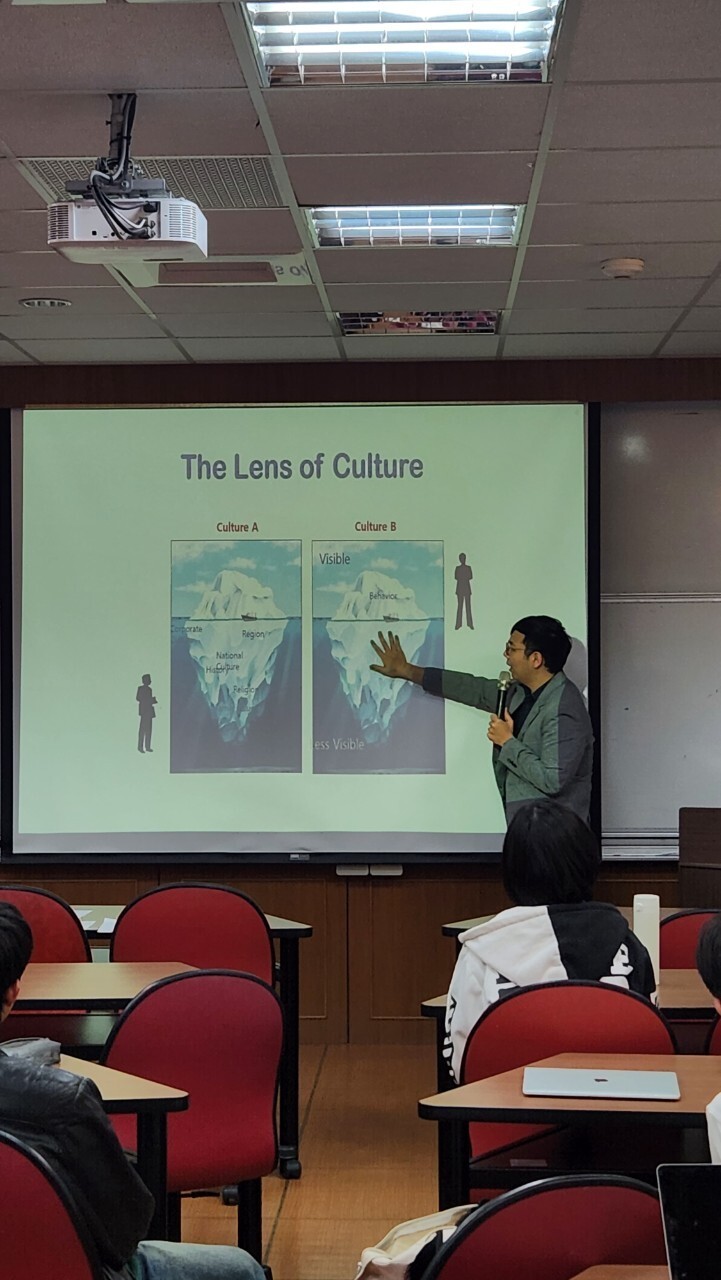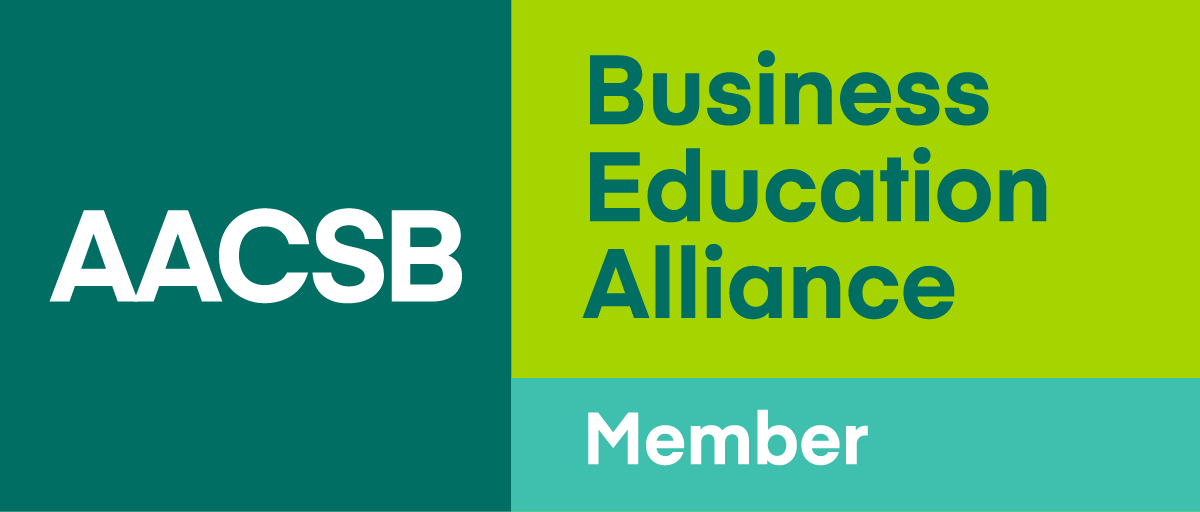[IBBA] Global Mindset, Culture, and Korean Cultural Wave in Taiwan
Written by DARYL ANDRIAN
On 11/27/2023, Dr. Sungjun (Steven) Park from National Chengchi University came to the Marketing Management course in IBBA program to give a guest lecture. Dr. Park focused on the global mentality and cross-cultural mindset in terms of understanding consumer behavior and using Korean cultural wave as a practical example.
Global mindset and culture & Cross-cultural consumer psychology
Dr. Park began his lecture be addressing critical talent issue in the HR context globally. The reason is not about employees’ technical skill, but about lack of people skills. In the globalization age, we need the ability to understand similarities and differences among cultures. Culture is more than what we see through our eyes (food, dress, behavior, language). There are lots of intangible parts (beliefs, customs, values, assumptions) that shape our culture norms.
The second part of the lecture was a group activity. Dr. Park divided students into Asians and International students and clustered 4-5 students into a group based on those two cultural backgrounds. All groups needed to share the notable characteristics of eastern and western culture and identified those traits on board for discussion. Dr. Park then generalized the differences between westerners and easterners based on individualist and collectivist perspectives. He then used the viewpoint of interdependent vs independent to provide some examples of cultural differences. For example, Asian are more interdependent so people prefer to hide within a group and not to stand out meanwhile Europeans are more independent and tend to think about their own selves more. Dr. Park also used many other examples such as power distance, context understanding in conversation, and the certainty level to illustrate his points.
Dr. Park concluded this section by mentioning that even in Asian countries some differences could be found. Even though most Asian countries are collectivist, some traits are really different from one country to another. Similarly, there are differences among western countries even though they might all be considered more individualistic. So, we cannot make rush judgment when we are evaluating people with different culture backgrounds.
Korean cultural wave in Taiwan
The session continued with the talks about Hallyu which literally means “Korean wave” referring to global popularity and spread of South Korean culture. Before the Hallyu phenomenon, Korea was known for their Korean war. Dr. Park explained that the Korean wave could be divided into four phases, from the spread of K-pop, K-drama, K-food to other authentic aspects of Korean culture. Dr. Park considered that K-pop is highly connected with BTS for their instrumental role to bring K-pop to the global stage. He then used some statistics to show that although Taiwan currently doesn’t really rank high in Korean culture popularity, it has a high growth potential.
Dr. Park ended the session with a case study about “How to enter Taiwan market to promote Korean Chicken called ‘BBQ’?”. It was meant to figure out the strategy to enter foreign market. In this case, BBQ market chose to enter Taiwan market using family mart as their store. So bb.q chicken 18 stores with Family Mart in Taiwan. They joined this venture because they considered convenience stores allowed lower entry barrier and higher accessibility. The lecture was concluded with a Q&A session.
